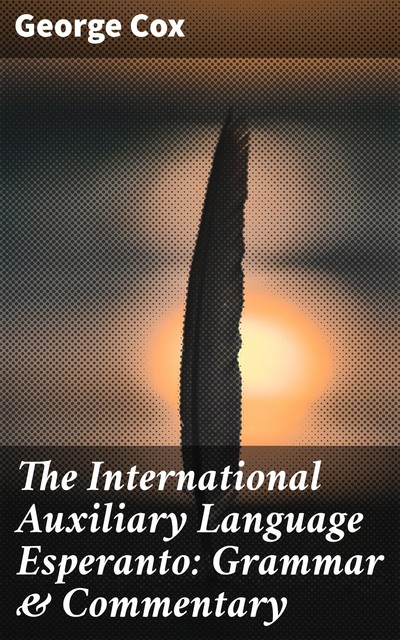In “The International Auxiliary Language Esperanto: Grammar & Commentary,” George Cox meticulously examines the structure and function of Esperanto, an artificial language created to foster cross-cultural communication. The book is a blend of scholarly analysis and practical guidance, featuring an in-depth exploration of grammatical rules and nuances, accompanied by insightful commentary that elucidates the language'Äôs philosophical underpinnings. Written in a clear and accessible style, it situates Esperanto within the broader context of linguistic evolution and the historical quest for a universal language, reflecting its aspirations and limitations in the modern world. George Cox, a linguist with a profound interest in language development and international communication, has dedicated his academic career to the study of constructed languages. His background in both linguistics and cultural studies informs this comprehensive examination of Esperanto, allowing him to weave together the threads of grammar, syntax, and sociolinguistics with real-world applications. Cox'Äôs passion for fostering mutual understanding through language makes this work not only an academic endeavor but also a personal mission to bridge gaps among diverse societies. This insightful book is highly recommended for linguists, language enthusiasts, and anyone intrigued by the dynamics of communication. Cox'Äôs detailed yet engaging approach invites readers to not only grasp the mechanics of Esperanto but also appreciate its role in promoting global interconnectedness. A valuable resource for both scholars and learners alike, it serves as a gateway to understanding the significance of an auxiliary language in today'Äôs interconnected society.


